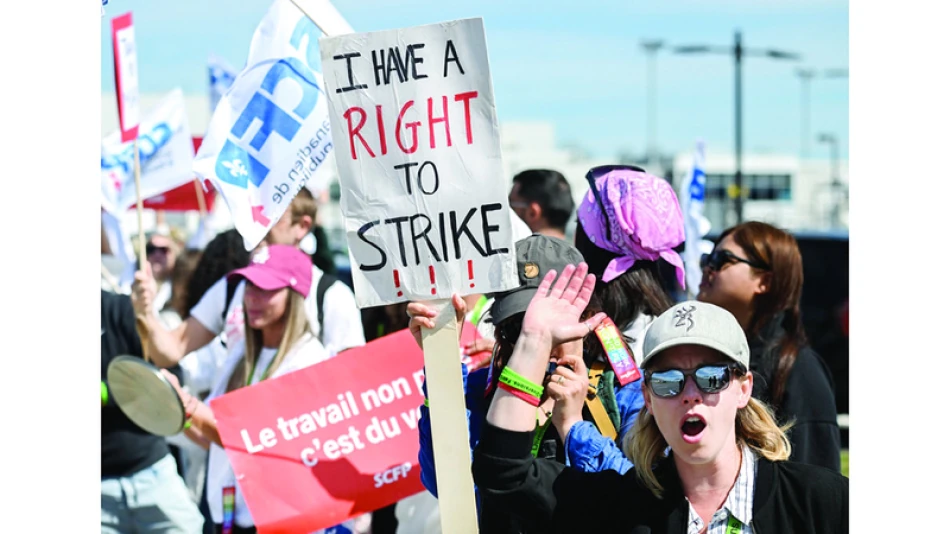
Canadian Airlines Cabin Crew Strike Resolved in Principle
Canadian Flight Attendants End Strike After Marathon Talks, Disrupting 130,000 Daily Passengers
Air Canada flight attendants have ended their strike after reaching a tentative agreement with the airline following more than nine hours of overnight negotiations. The labor action, which began Saturday and canceled hundreds of flights across Canada's busiest travel corridors, affected approximately 130,000 passengers daily and highlighted growing tensions between airline workers and management over post-pandemic working conditions.
Strike Ends After Government Pressure Fails
The union representing Air Canada's cabin crew announced the end of the strike in a statement Tuesday, calling on members to provide "full cooperation with the resumption of operations." The breakthrough came after a marathon negotiating session that stretched into the early hours of Tuesday morning, according to Bloomberg.
"The strike is over. We have a tentative agreement that we will present to you," the union posted on its website, signaling relief for thousands of stranded passengers and the broader Canadian travel industry.
Government Orders Ignored
Notably, the union had rejected government orders to return to work, maintaining that their demands were reasonable. This defiance underscores the determination of airline workers to secure better compensation and working conditions, even in the face of political pressure and public inconvenience.
Core Issues: Pay and Onboard Working Conditions
The strike centered on two key issues that have become flashpoints across the global aviation industry: wage increases and compensation for boarding duties. Flight attendants specifically demanded pay for time spent during passenger boarding processes, a practice that varies significantly across international carriers.
These demands reflect broader industry trends where cabin crew are pushing back against cost-cutting measures implemented during the pandemic. Similar disputes have emerged at airlines worldwide, from American carriers like Southwest and American Airlines to European operators such as Ryanair and Lufthansa.
Economic Impact and Market Implications
The timing of the strike proved particularly damaging, occurring during peak fall travel season when business travelers return from summer breaks and leisure passengers book final autumn trips. Air Canada, which dominates Canada's domestic market with roughly 60% market share, saw its operational network severely disrupted across major routes connecting Toronto, Vancouver, Montreal, and Calgary.
Investor Concerns
For investors, the strike highlighted ongoing labor cost pressures facing airlines as they navigate post-pandemic recovery. Air Canada's ability to reach a swift resolution suggests management recognized the financial damage of prolonged disruption, particularly given the airline's efforts to rebuild profitability after pandemic losses exceeding CAD $4 billion.
Broader Industry Context
This strike fits a pattern of increased labor militancy across North American aviation. United States carriers faced similar challenges in 2023, with flight attendants at major airlines securing significant pay increases after threatening strike action. The Canadian resolution may set precedents for upcoming contract negotiations at other carriers, potentially raising industry-wide labor costs.
The swift resolution also demonstrates how quickly airlines must respond to operational disruptions in today's concentrated market. Unlike the prolonged strikes common in European aviation, North American carriers face immediate competitive pressure and regulatory scrutiny that incentivizes rapid settlements.
Looking Forward
While specific terms of the tentative agreement remain undisclosed pending union ratification, the resolution removes a significant operational risk for Air Canada heading into the crucial holiday travel season. The airline now faces the challenge of rebuilding passenger confidence while managing potentially higher labor costs reflected in the new contract terms.
The successful strike may embolden other airline worker groups across Canada and beyond, signaling that coordinated labor action remains an effective tool for securing improved compensation in the recovering aviation sector.
Most Viewed News

 Sara Khaled
Sara Khaled






